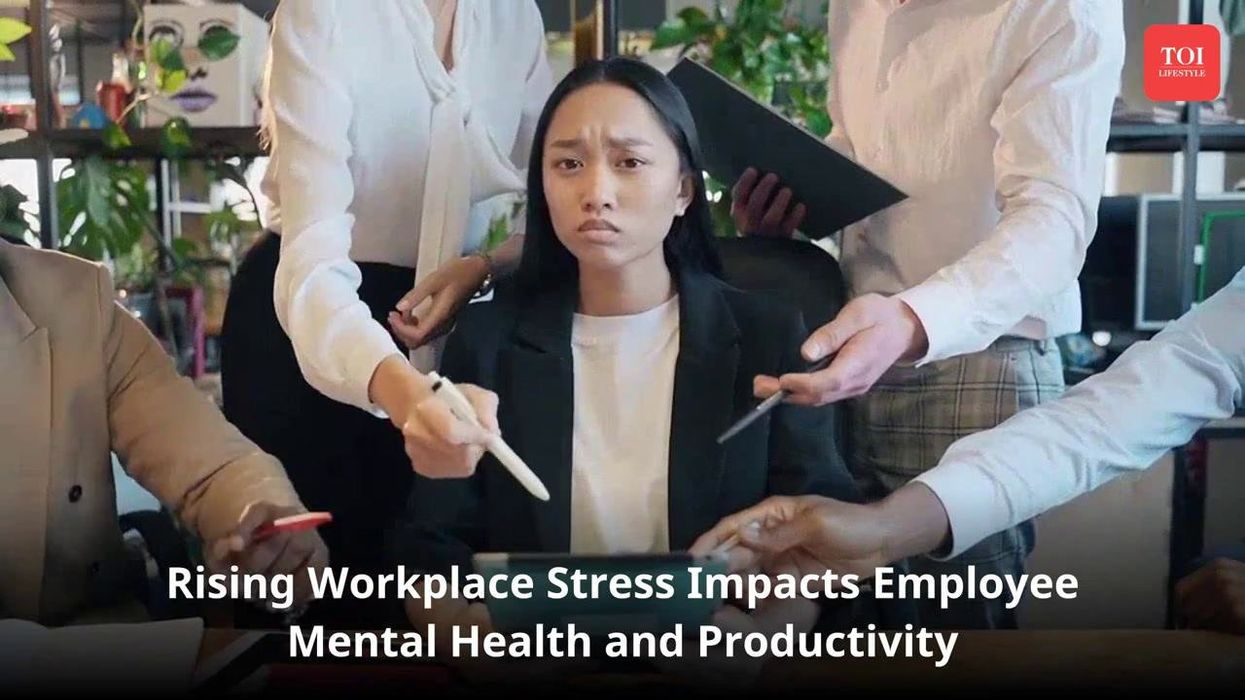The workplace, whether in real life or virtual, always has its challenges. With each day comes the task of managing expectations, while hopefully being as happy and positive as you can be.
But have you ever felt pressured to always appear cheerful and positive at work, even if you feel stressed, sad or overwhelmed?
What is pleasanteeism?
The pressured feeling to mask your feelings at work to appear optimistic and happy even if you are far from it now has a name. It’s being referred to as "pleasanteeism", which combines the words “pleasant” and “presenteeism”.
Pleasanteeism refers to a workplace culture that essentially makes employees smile through gritted teeth, concealing their true feelings and emotions about work-related stress.
It is related to the trend presenteeism, describing when employees feel they have no choice but to show up for work even if they are unwell. This means they don't work to their full potential.
How long has pleasanteeism been an issue?
The workplace may not always be the most enjoyable place to be, however research and experts believe the issue has become more prominent in recent years.
The phrase pleasanteeism was first coined in 2021 during the Covid-19 pandemic. Research that year by medical cover provider Lime Global found 51 per cent of workers felt the need to put on a brave face in front of colleagues. However, this increased to 75 per cent the following year.
Experts are concerned pleasanteeism is now more prominent than ever.
There are also worries about workplaces not doing enough to help employees feel comfortable about airing their true thoughts and feelings without repercussions. Another trendy debate this year focused on “glossing”, in which bosses gloss over all the tough parts of a business to focus on the so-called good things.
How do you know if you’ve experienced pleasanteeism?
David Rice, HR expert at People Managing People says there are four key signs to be aware of.
- You don’t feel like you can show your emotions at work
- You don’t feel able to admit you’re feeling overwhelmed
- You feel pressured to pretend you’re not struggling mentally
- It’s impacting your personal life
How does pleasanteeism affect your work?
Masking your true feelings can impact both your personal and professional life. One sign of pleasanteeism according to Rice is “constantly apologising for showing any signs of stress”.
He adds: “A big factor of pleasanteeism is constantly taking on more work and saying ‘yes’ to everything, even if you’re already at full capacity. To avoid letting anyone down, you take on the extra work and don’t admit that you’re actually massively overworked and overwhelmed.
“As a result, you might constantly be starting early or staying late to appear ‘committed’, and take sick days for some rest, whilst covering it up as a physical illness.”
You may also avoid social interactions or find yourself brushing over issues during one-to-one meetings.
How can employers break the cycle of pleasanteeism?
Rice says change starts from the top: “Let’s be real. Over the past decade, the world has been a very tough place to exist. Be it due to the Covid pandemic, Brexit, wars or an economic crisis, the list goes on. Showing up to work and putting on a brave face, when there’s news of a cost of living crisis, wars and general elections going on, is not an easy thing to do.
He added: “Workplaces can’t ignore that, we have to recognise that employees might not always feel 100% motivated. Ideally, you want to create a culture of trust, in which employees feel that they can share their reality with you and the organisation finds ways to help them.
“Otherwise, the problem gets worse. Employees become unable to do their jobs as they are not truly ‘present’, and the cycle goes on.”
How to join the indy100's free WhatsApp channel
Sign up for our free Indy100 weekly newsletter
Have your say in our news democracy. Click the upvote icon at the top of the page to help raise this article through the indy100 rankings.














